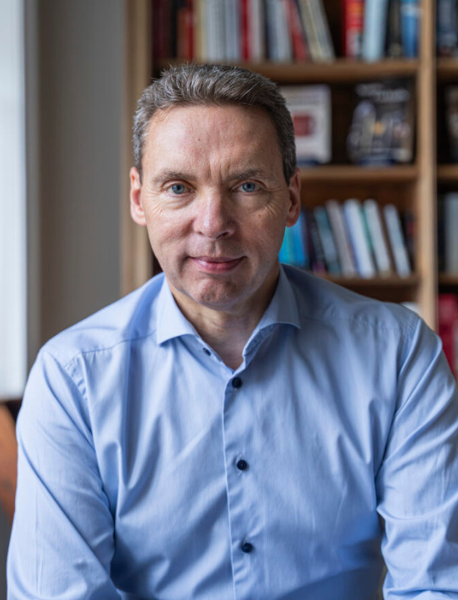Opening up language to everyone
Nigel Portwood
“We are all participants in this evolving story of the English language; it’s how we communicate with others, express ourselves, and form connections. “

2022 has undoubtedly been a year of change; we have seen many parts of the world open up again and we reunited with friends and family, gathered for events, and headed back into workplaces. This is something we have experienced first-hand at OUP. Last month, I visited our colleagues in South Africa alongside Professor Dame Louise Richardson, Vice-Chancellor of the University of Oxford, and saw our mission in action in local schools and communities. We were also able to return to Frankfurt Book Fair to connect with our customers and partners in-person once again.
But this has been against a challenging backdrop; the passing of an iconic monarch, growing economic uncertainty, and the impacts of war. In a year marked by reunion and reconnection, our world somehow feels more divided than ever. It is with this in mind that we felt it was time for a change in approach for this year’s Oxford Word of the Year 2022.
Last week, in a special press event hosted by Susie Dent, we announced that OUP will be opening up the final decision to a public vote for the first time in its history. We are all participants in this evolving story of the English language; it’s how we communicate with others, express ourselves, and form connections. That’s why we wanted to give more people the opportunity to be involved in the selection process, rather than making the decision behind closed doors.
Our lexicographers monitored and analysed developments and trends in language, creating a compelling case for three candidates: metaverse, #IStandWith, and Goblin Mode. All of which saw a substantial increase in usage and capture significant themes of the past year—whether that’s grappling with the concept of an entirely online future (metaverse), using social media to express solidarity with a cause (#IStandWith), or reassessing societal norms and the pressures put upon us after a challenging few years (Goblin mode). While they are all very contrasting in their nature, Ben Zimmer, American linguist, language columnist, and panellist at our recent event, noted that all three choices could relate to how people are seeking connections after a difficult time.
The power of language to inspire expression has been reflected in the response to the campaign already – it’s astounding to see that votes have been cast in their hundreds of thousands. People worldwide have taken to social media to debate the choices and have their say on which word best reflects the mood, ethos, and social landscape of 2022—as well as discuss the broader topic of what makes a word viable in the first place.
We have also seen publications across the globe continuing the conversation. From The Guardian’s early rundown of the campaign, to Susie Dent discussing our new approach on BBC South Today, to the Times of India highlighting the meanings behind each word candidate, everyone, everywhere have been encouraged to get involved.
We’ll be counting the votes and revealing the winner next week—I very much look forward to seeing which word is crowned this year’s Oxford Word of the Year.
However, our celebration of language—and its ability to enrich our lives—doesn’t end there. As we near the end of the calendar year, we wanted to continue to demonstrate how it can bring people together from across the world.
In 2020, we launched Gift of Words to inspire children and adults alike through words, and encourage them to share this gift with others. In 2021, we shifted our focus to reading and its ability to open people’s minds to new worlds, ideas, and cultures. But the underlying message of the campaign has always been the same, centred around how language can create opportunities, teach us about the world, and help us better understand one another.
For this year, we asked adults and children globally to share the words that they would ‘gift’ from one language to another. The words that have been submitted so far truly show how language transcends borders, and how sharing words can enable us to communicate and express ourselves to an even greater extent.
Over the next two weeks, we’ll be sharing some of the submissions we received across our Twitter and Instagram channels, as well as insights into the benefits that can come from embracing language in all its forms.
You can cast your vote for our Oxford Word of the Year 2022 here. The vote closes at 23:59 GMT on Friday 2 December 2022. The winner will be announced on Monday 5 December 2022.

